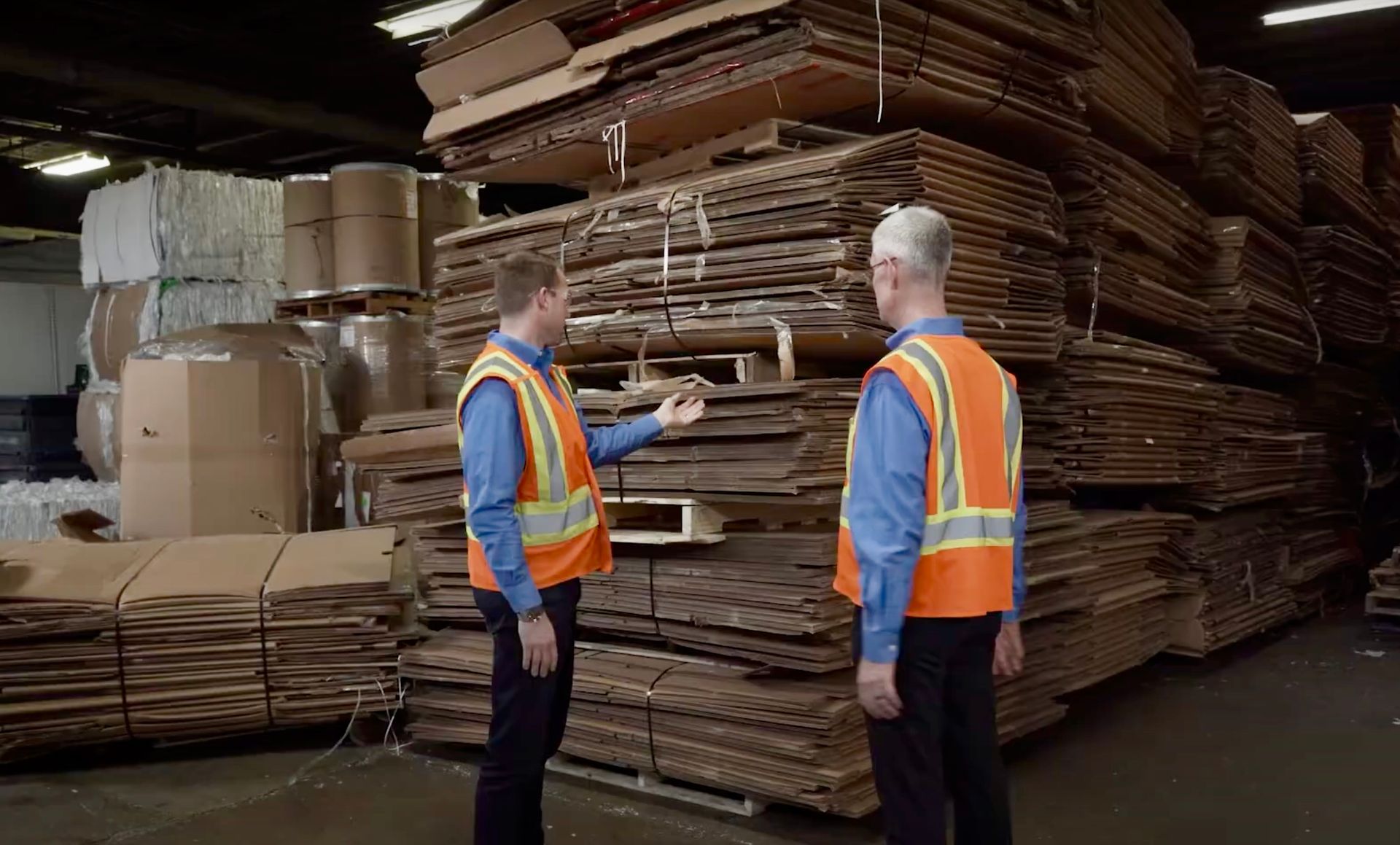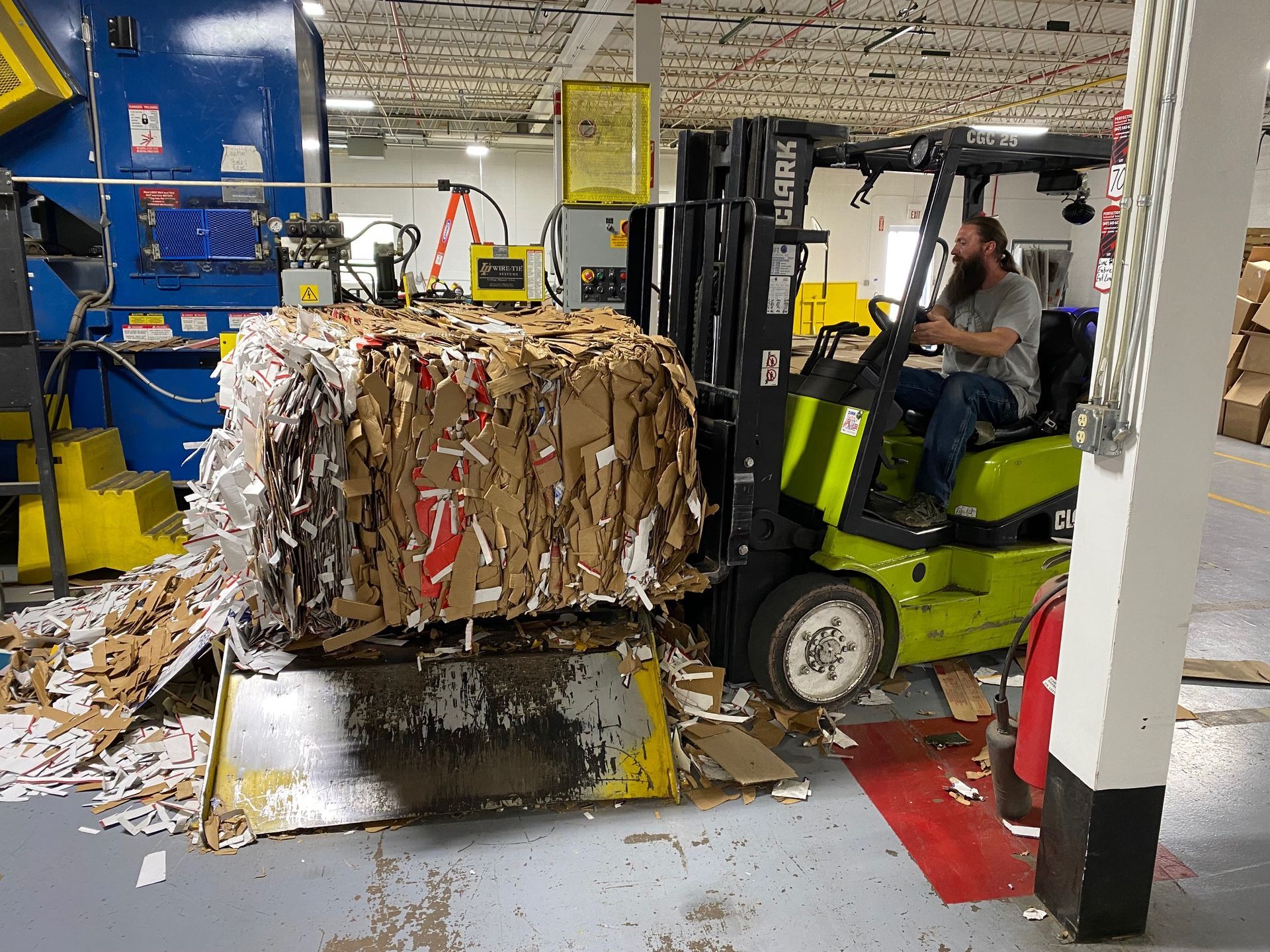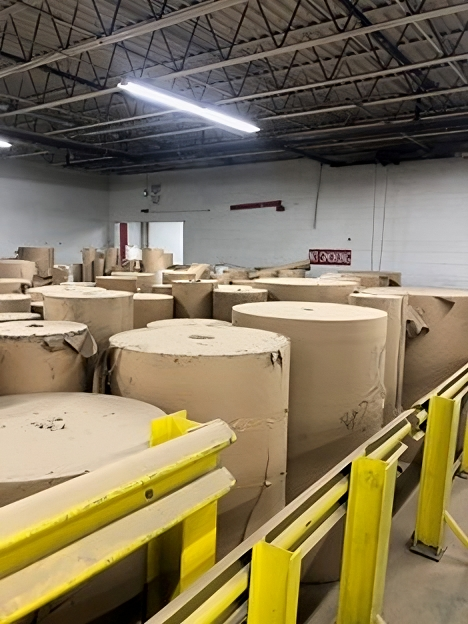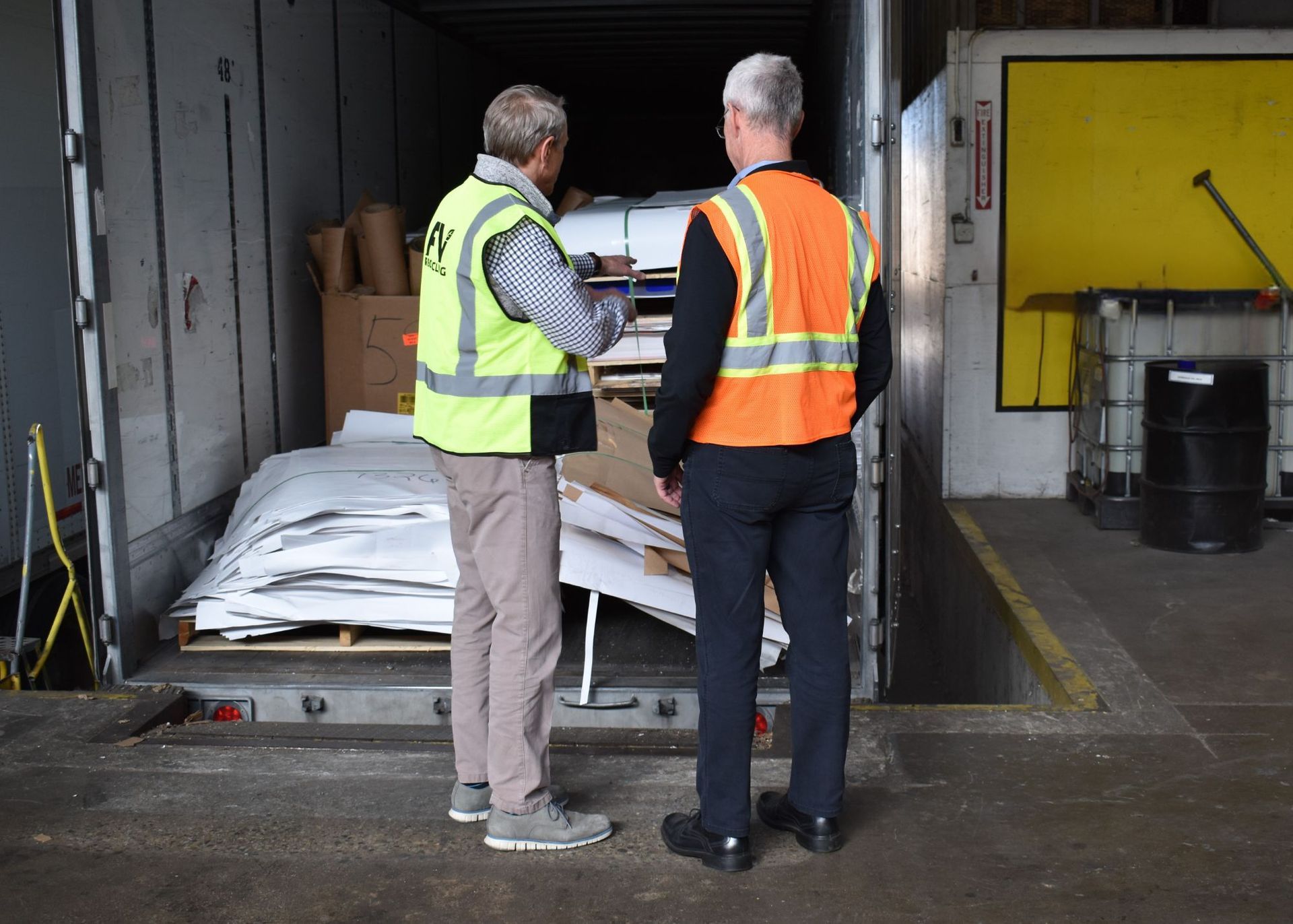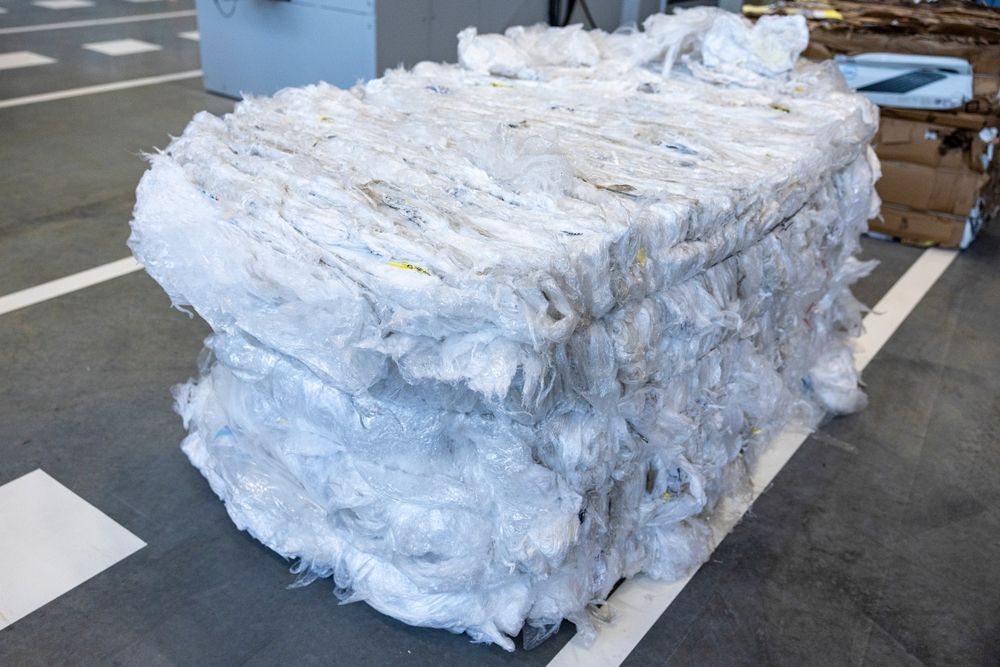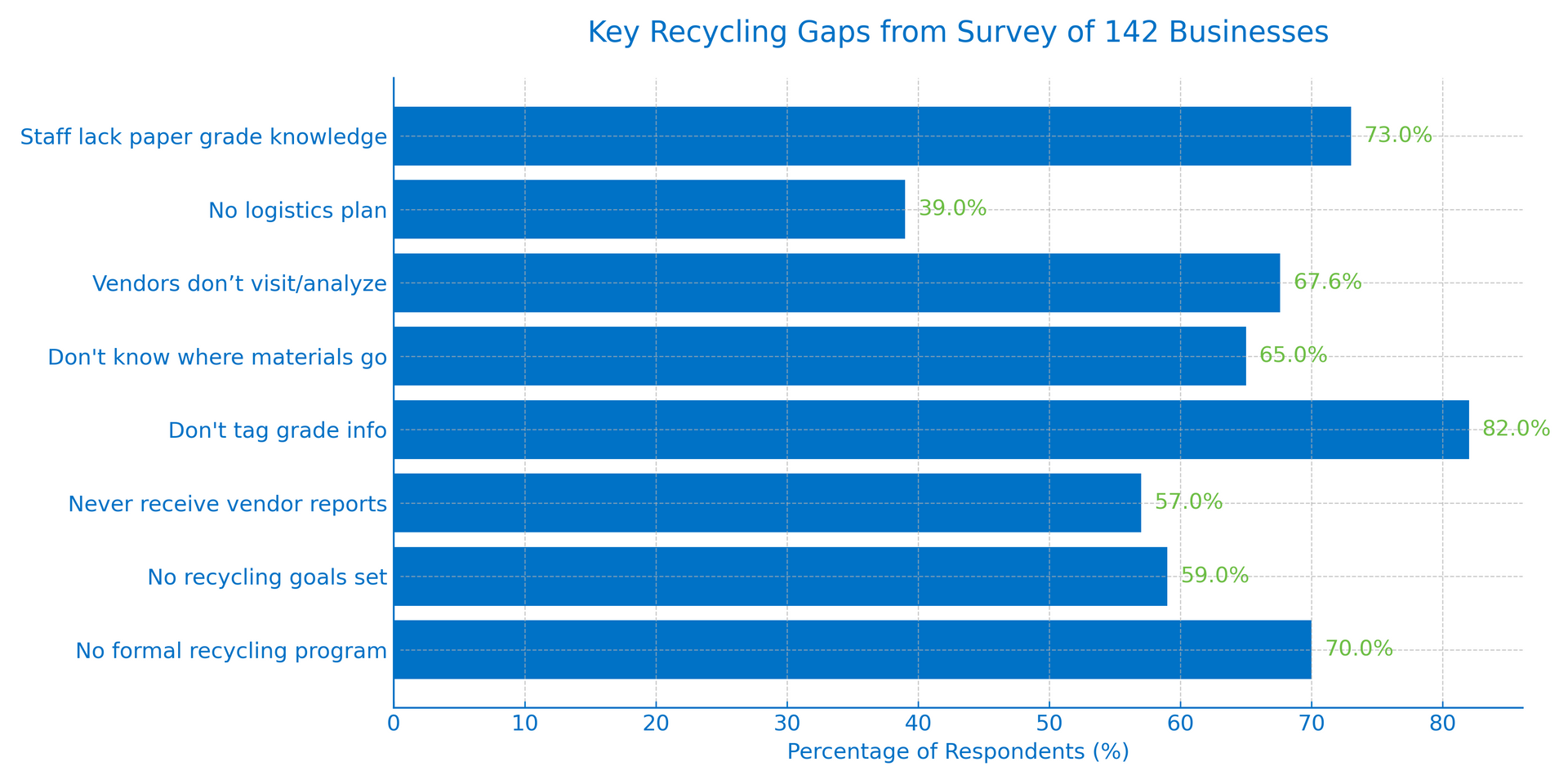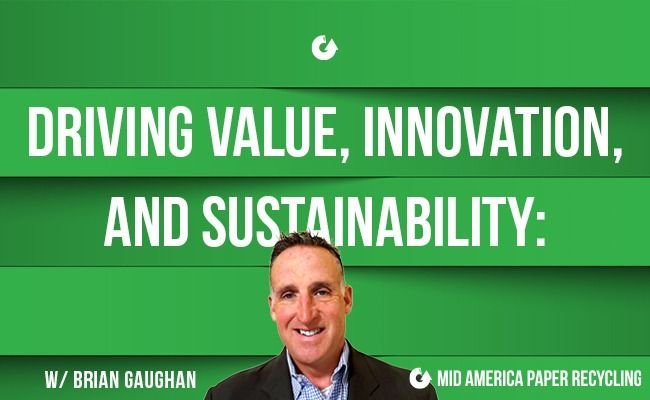When the Mill Shuts Down: What Happens to All That Recycled Corrugated?
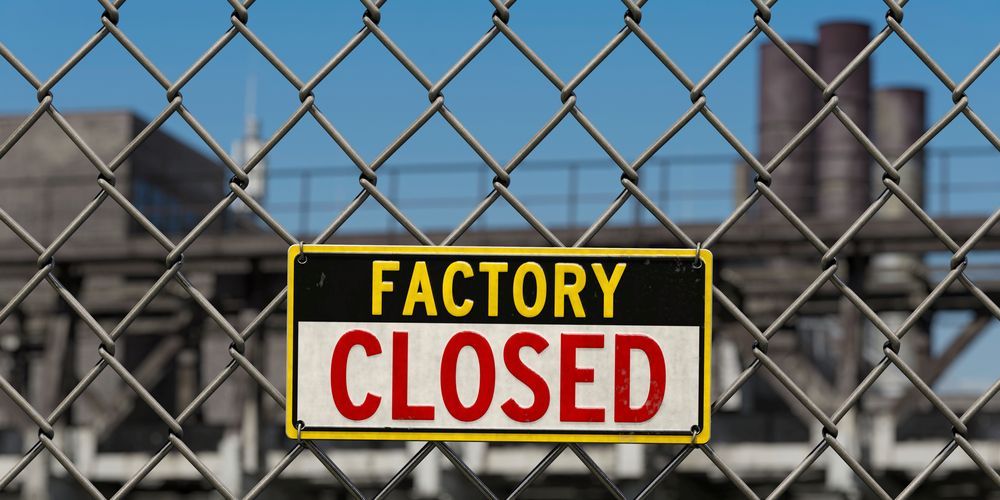
This summer, three major paper mills are set to close across the U.S., sending shockwaves through regional recycling ecosystems. Smurfit WestRock will shut down its historic St. Paul, Minnesota mill by the end of June, along with its Forney, Texas location just outside Dallas. Meanwhile, Graphic Packaging International has announced the permanent closure of its coated recycled paperboard facility in Middletown, Ohio.
These closures don’t just affect the nearly 500 workers employed at the sites. They also disrupt the carefully orchestrated supply of recovered fiber, mostly old corrugated containers (OCC), that fed these mills. When a mill goes offline, the question becomes immediate for local suppliers:
Now what?
A typical mill shutdown can affect as many as five major, 15 mid-sized, and 50 smaller generators of recyclable material in the surrounding area. These include local trash haulers and material recovery facilities (MRFs), retailers, distribution centers, food processors, and commercial printers and packaging firms, many of whom rely on consistent mill demand to keep their recycling programs viable and profitable.
A Supply Chain Disrupted
The U.S. paper industry depends heavily on recycled fiber. In 2025, recycled materials are expected to represent nearly 45% of all paper and board production, with corrugated board production relying especially on old corrugated containers (OCC).
But when large mills close, particularly ones with a high recycled fiber intake, nearby generators must scramble to reroute truckloads of their material. The result is a sudden supply chain bottleneck, and often, a costly one.
That’s where Mid America Paper Recycling comes in.
Chaos, Then Opportunity
“These closures create chaos, no question,” says Don Gaines, CEO at Mid America Paper Recycling. “But if you're a supplier affected by this, there are solutions, and they don’t have to involve panic or loss.”
One customer in the Upper Midwest, for example, had been shipping 4,000 tons per month of loose corrugated material into the St. Paul mill. With its closure imminent, they now possibly face the need to source and install baling equipment, reconfigure logistics, and secure new offtake partners elsewhere, all within a matter of weeks.
“And it’s not just the large accounts,” Gaines points out. “Small and mid-sized businesses often don’t have the infrastructure or the paper mill relationships in place to pivot quickly. That’s when they need a partner like Mid America.”
Fast Action, Trusted Help
Mid America Paper Recycling has been through moments like this before. With a century-long track record, the company has helped thousands of businesses maintain recycling continuity during times of disruption, whether due to plant shutdowns, production pauses, policy shifts, or market volatility.
Mid America Paper Recycling is already working with suppliers in the Minneapolis–St. Paul, Dallas–Fort Worth, and Cincinnati–Middletown regions to offer solutions: redirecting loads, identifying nearby end markets, and providing fair, transparent pricing even as volatility rises.
“In this business, movement is everything,” says Gaines. “When the material stops moving, that’s when problems start. We specialize in keeping the flow going, no matter what.”
What Should Affected Suppliers Do?
If your corrugated recycling outlet is impacted by one of these closures, here are key steps to take:
- Act quickly: Don’t wait until material piles up, where it can risk degradation or contamination. Assess your current storage, transportation, and baling capacity. And if you’re unsure where to begin, Mid America Paper Recycling offers a free waste audit to help you evaluate your material flow, identify bottlenecks, and uncover new value in your recycling stream.
- Evaluate infrastructure needs: If you’ve been shipping loose OCC, you may need to invest in baling. That takes time, capital, and planning. And a partner well versed in value analysis.
- Vet downstream options: Look for a recycling partner with an experienced support team that coordinates closely with brokers and logistics providers to keep material flowing smoothly. Strong relationships with mill buyers and fiber suppliers, along with insight into their operations, can make a big difference in ensuring fair pricing and reliable movement of your recyclables.
- Diversify: Avoid overreliance on a single mill. This moment is a wake-up call to build more flexible, multi-channel end markets where your material is most valuable.
Mid America Paper Recycling Is Ready
Whether you're in St. Paul, Forney, TX or Middletown, OH, Mid America Paper Recycling stands ready to help suppliers navigate this period of transition. From large recyclers and waste haulers to regional warehouses and packaging companies, we offer both the infrastructure and market access to keep material moving and value flowing.
“If your mill just closed,” Gaines says, “you’re probably asking yourself, ‘Who’s going to take this material now?’ We’re here to answer that question, and solve the problem.”
Mill closed? We’re open. Reach out to Mid America Paper Recycling and let’s keep your recycling program on track. Contact us at
Info@midamericapaper.com, visit
www.midamericapaper.com, or call us at 773-890-5454.

